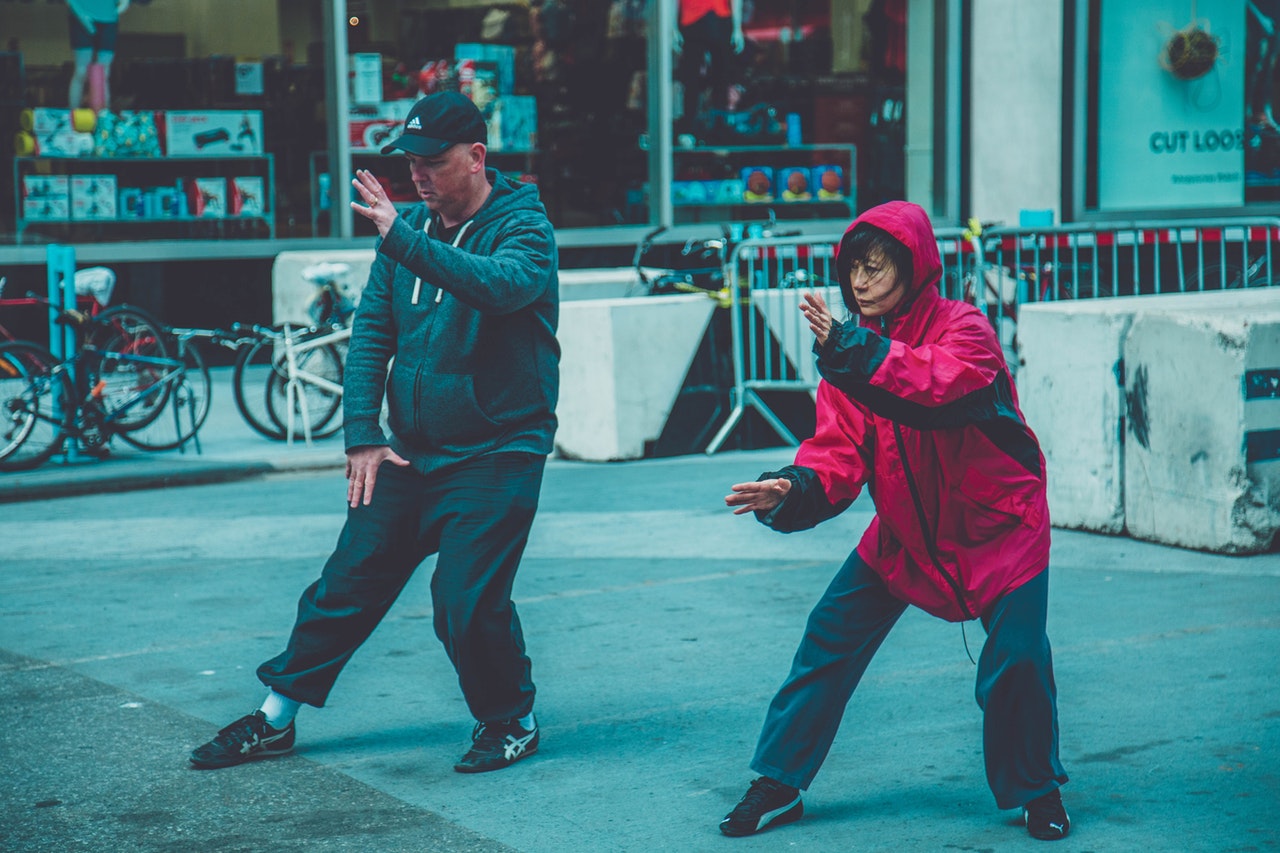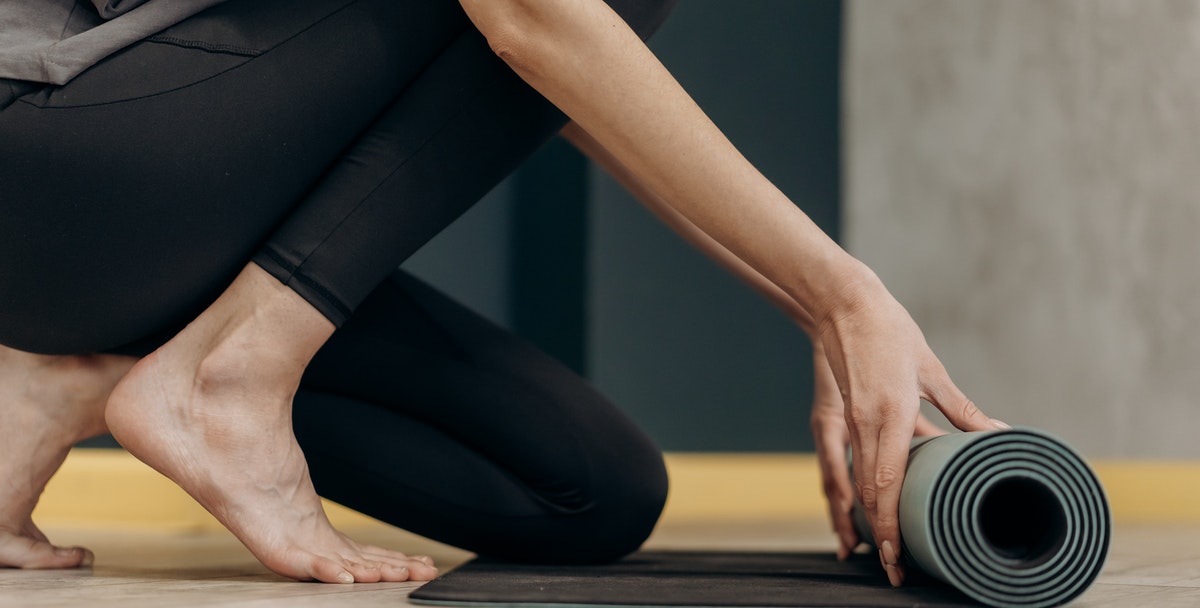We have long known that exercise yields significant benefits for one’s mental and physical wellbeing. Still, we may be discouraged by the intensity of aerobic exercises or the price of gym equipment to bring our fitness to fruition. If you are someone who also has these qualms, then Tai-chi may be a perfect place for you to start. It is a relatively painless and inexpensive activity, surpassing the common reservations that come with exercising.
Tai chi relieves stress through gentle and slow-paced movements. The Chinese tradition has demonstrated many physical benefits and positive effects on mood enhancement. Thus, it is an ideal exercise for beginners looking to boost their holistic health.
Related: Can’t Straighten Your Arms After A Workout? Here’s What To Do.
What is Tai chi?
Tai chi is a martial art dating back to ancient China. Like yoga, the movements are gentle and meaningful, aiming to raise one’s mind-body alignment. There are five styles of Tai chi that vary in movements, but the Yang style remains the most popular given its low demands on the body.
Tai chi also draws on elements of Qigong and focuses on breath skills to improve internal energy. With its roots in Buddhist and Taoist monasteries, the exercise also possesses many philosophical and meditative qualities, allowing one to work on their mental health through mindfulness techniques.

The benefits of Tai chi
Tai chi can improve your mood, strength, and awareness through calming exercise. It is relatively low-impact and requires no equipment, making it an accessible activity for people of all ages seeking relief from chronic pain symptoms; Tai chi can help alleviate:
- Inflammation: Inflammation can either be the body’s healing response to injury (acute) or as a result of conditions such as Alzheimer’s disease or exposure to environmental toxins (chronic). However, studies have shown that Tai chi can help reduce some of that inflammation in adults 55 years and older at the cellular level.
- Joint Pain: many adults fall victim to joint pain, which can last weeks or even years if chronic. The most common cause of joint pain is Arthritis, targeting joints such as the hands, hips, and knees. In a study that observed the effects of Tai chi on knee Osteoarthritis patients, results showed that the group who practiced Tai chi for 12 weeks experienced an improvement in pain symptoms that lasted up to a year.
Related: Nerve Pain: Causes & Natural Treatments Guide

How does Tai chi Alleviate Stress?
Unfortunately, nobody is immune to stress. We all undergo adversities at different phases in our lives, and the symptoms may manifest as fatigue, muscle aches, or insomnia. External factors of stress include but are not limited to:
- Finances
- Chronic Illness
- Loss or death
- Relationships
- Moving
Many people are looking for new and successful methods to manage stress as it can greatly affect one’s quality of life. People may turn to exercise as an answer, and that’s where Tai chi can be a powerful instrument of intervention.
Lesser known, Tai chi is an excellent tool for combating stress. Given its relaxing properties, studies have shown it to help with one’s mood, sleep, and anxiety overall. Let’s dive into ways Tai-chi can help fight harmful stress symptoms:
- Depression: stress can exacerbate mental illnesses like major depressive disorder (MDD). Tai chi is an effective intervention as it can improve depression scale scores in patients after only 12 weeks. MDD is often comorbid with anxiety. Hence, it is imperative to relieve the symptoms of the former to prevent it from worsening those of the latter.
- Anxiety: Tai chi is essentially “meditation in motion.” Its emphasis on breathing, attention, and purpose are also all elements of mindfulness meditation, another method long used to quiet anxiety symptoms. Tai-chi promotes relaxation which in turn, soothes anxious thinking patterns and allows one to feel in the present.
- Sleep: stress can also cause poor sleeping habits and lead to daily fatigue. However, a study demonstrated that after two months of practicing Tai chi, patients reported greater sleep quality than those in the control groups. Tai chi is a valuable way to combat stress-induced insomnia as well as encourage better sleep to alleviate further stress.
- Cognition: extreme stress may compromise cognitive processes, such as working memory, attention, and response inhibition. Meta-analysis studies show, however, that Tai chi boosts executive functions such as memory and decision-making. It can even slow the progression of dementia in those with mild cognitive impairment. Tai chi sharpens cognition, which may enrich one’s day-to-day living.
These stress effects can be debilitating in severity; if you are experiencing any of these issues, Tai chi can be an excellent complementary therapy to implement.
Final Thoughts
Tai chi is an exercise that can enhance one’s mental, physical, and spiritual well-being. The holistic qualities and the fact that you can do it anywhere and at any time make it a very attractive option for anyone who wants to improve their daily health or target an issue such as anxiety or inflammation.
To start, you may want to view instructional videos online or join a Tai chi class for guidance. For beginners, a Tai chi instructor may be of use as they can teach breathing techniques and ensure that you are performing the movements correctly–which is especially important for those who face chronic pain. The sooner you start, the sooner you can reap the positive effects. For just 20 minutes a day, you will see great progress after only weeks of practice.
Lastly, Tai chi can relieve those dealing with stressful situations. Whether seeking active ways to fight mood issues or easy approaches to managing body pain, Tai chi provides a host of benefits for those of all ages and fitness levels.
Looking for ways to combat chronic or acute pain with integrative medicine? Contact Herbal Ice for remedies for inflammation!



